Historical settings can give mystery and crime novels added depth and texture. In this list, set everywhere from a post-WWI Welsch village to the freezing Arctic, our protagonists have to navigate the threats of clever murderers. But they do so on frozen tundra or in an early Plymouth colony already on life support from disease and scarcity of food, and it raises the stakes in such a dramatic way.
I’ve always been drawn historical fiction with a mystery or suspense undertow, ever since my gateway book back in 2001, Year of Wonders: A Novel of the Plague by Geraldine Brooks. Set in 17th century England in a village that quarantines itself to stop the spread of the disease, it’s still one of my favorite books and so eerily relevant to today’s pandemic. Inspired by the true story of Eyam, a village in the rugged hill country of England that fought the bubonic plague after it arrived in the village via a flea-infested bundle of cloth, Brooks’ depiction of the remote setting brings the story so alive you can feel the flea bites.
Another favorite, Stephen King’s fabulous historical novel 11/22/63, about a time-traveling English teacher who attempts to prevent the assassination of President Kennedy, is another wonderful example of setting bringing the story alive. King’s exhaustive research, the perfect amount of particularity and a soupcon of King’s dark humor, makes going back to Dallas, Texas feel so real, as we step into Lee Harvey Oswald’s creepy world. All as it amplifies and brings into Kodachrome color the suspense of the plot as it unfolds.
Fifteen years later I wrote my own historical fiction novel Lilac Girls and learned firsthand that setting comes first in the genre. Much of the true story the book is based on takes place at Ravensbruck Concentration Camp in Germany, Hitler’s only all-female camp, and I was determined to bring vivid detail to that horrific place, where young women were operated on without anesthesia and executed by Nazi soldiers given extra liquor rations.
Setting has clearly inspired my fellow authors on this list as well. And I’m thankful to all the novelists who keep writing about far-flung places, in the long-distant past.
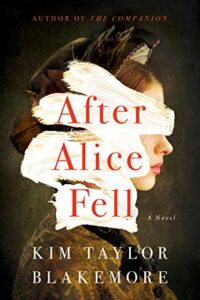
After Alice Fell by Kim Taylor Blakemore
In New Hampshire, just after the Civil War, recently widowed Marion Abbott comes to an asylum to claim the body of her sister, Alice. The authorities tell her Alice’s death was an accident, but she suspects murder. Once Marion goes to live with her brother, she searches for the truth about her sister’s death without success, until a stranger appears and offers new clues. Not knowing who she can trust, Marion forges ahead to find the truth and risks her own life to uncover the secrets buried with Alice.
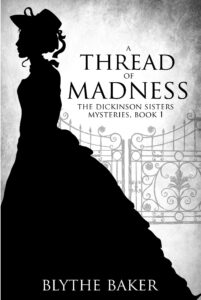
A Thread of Madness by Blythe Baker
After spinster sisters Iris and Lily Dickinson witness a murder, they plan on keeping it keep themselves. However, when they find out that the killer might be living in their small town, they now have urgent need to find out the killer’s identity. Can the sisters figure out who the killer is among them before that person strikes again?

The Confessions of Frannie Langton by Sara Collins
Frannie Langton is accused of the horrible double murder of her employers, scientist George Benham and his wife Marguerite. The evidence against Frannie is damning and witnesses at the trial claim she is a seductress, a witch, a whore. But Frannie refuses to speak about how she came to be covered in the victims’ blood. Told in a courtroom trial setting, it’s beautifully written and brings the Old Bailey alive.

Hour of the Witch by Chris Bohjalian
Chris Bohjalian never disappoints and this time it’s witches in Boston. It’s 1662 and young Mary Deerfield is married to a horrible husband who drives a fork into the back of Mary’s hand. She knows she has to leave Thomas in order to save her own life, but Mary herself becomes the target of the townspeople, and soon Mary faces not just one dangerous man, but the gallows. Guaranteed to keep you on the edge of your seat.
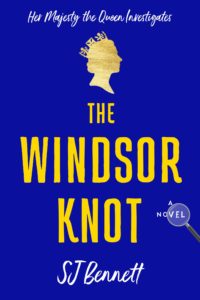
The Windsor Knot by SJ Bennett
Queen Elizabeth II solving crimes in her spare time? She does so in this wonderful inaugural book of SJ Bennett’s series. There’s a murder in Windsor Castle and the case is bungled until the Queen secretly steps in and takes matters into her own hands. SJ Bennett nails the Queen’s voice and spirit and Elizabeth turns out to not only be the leader of the Royal family but an exceptional sleuth as well.
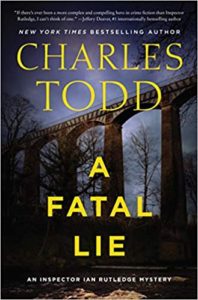
A Fatal Lie by Charles Todd
I’m a sucker for a peaceful Welsh village thrown into turmoil when a mysterious body is found. And Charles Todd’s latest in his Inspector Ian Rutledge Mysteries Series starts off just this way, with an unidentified body fished out of a local river. It’s post-World War I and the village police turn to Scotland Yard for help and once Inspector Rutledge is dispatched from London to find answers but uncovers only a web of lies. The clever murderer stays hidden, and it will take all Rutledge’s skill to catch one of Todd’s cleverest killers yet.
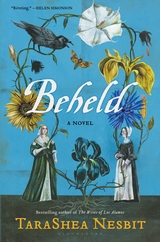
Beheld by TaraShea Nesbit
I grew up in a town not far from Plymouth, Massachusetts, so I love reading historical fiction about our original colonists. Inspired by the author’s curiosity about why William Bradford’s first wife Dorothy was never mentioned in his accounts of the colony, Beheld is set in early days of Plymouth, ten years after the Mayflower pilgrims arrive on unfamiliar soil. A murder trail unfolds, and dark secrets are revealed, exposing the unsavory underbelly of our original colonies.
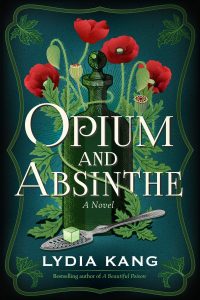
Opium and Absinthe by Lydia King
New York City, 1899. Tillie Pembroke’s sister lies dead, her body drained of blood and with two puncture wounds on her neck. Bram Stoker’s new novel, Dracula, has just been published, and Tillie’s imagination leaps to the impossible: the murderer is a vampire. But it can’t be—can it? Tillie won’t rest until she figures out the mystery of her sister’s death and can’t bring herself to believe vampires exist. But with the hysteria surrounding her sister’s death, the continued vampiric slayings, and her opium addiction looming, it becomes difficult for her to know what’s real—or whether she can trust those closest to her.
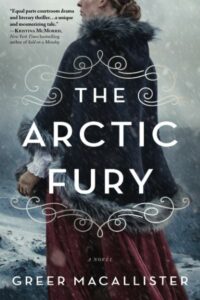
The Arctic Fury by Greer Macallister
Eccentric Lady Jane Franklin makes an outlandish offer to adventurer Virginia Reeve: take a dozen women, trek into the Arctic, and find her husband’s lost expedition. Four parties have failed to find him, and Lady Franklin wants a new approach: put the women in charge. A year later, Virginia stands trial for murder, giving us a front row seat as all the secrets of what happened on the journey unfold. The Arctic setting really crystalizes this story, in the same way the Dove Winter in Canada did for another of my favorite books, The Tenderness of Wolves by Stef Penney.
***


















